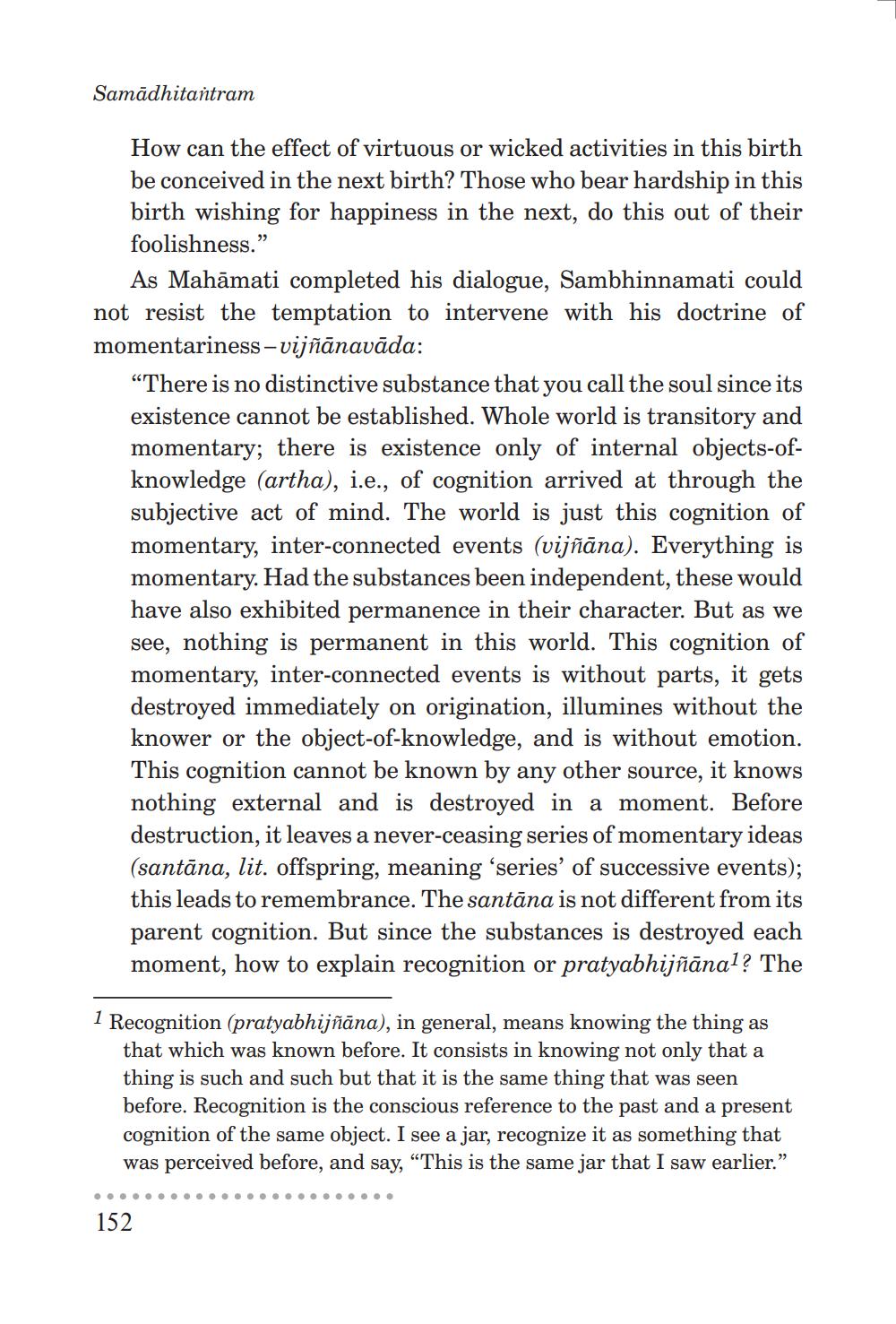________________
Samādhitantram
How can the effect of virtuous or wicked activities in this birth be conceived in the next birth? Those who bear hardship in this birth wishing for happiness in the next, do this out of their foolishness.”
As Mahāmati completed his dialogue, Sambhinnamati could not resist the temptation to intervene with his doctrine of momentariness - vijñānavāda:
“There is no distinctive substance that you call the soul since its existence cannot be established. Whole world is transitory and momentary; there is existence only of internal objects-ofknowledge (artha), i.e., of cognition arrived at through the subjective act of mind. The world is just this cognition of momentary, inter-connected events (vijñāna). Everything is momentary. Had the substances been independent, these would have also exhibited permanence in their character. But as we see, nothing is permanent in this world. This cognition of momentary, inter-connected events is without parts, it gets destroyed immediately on origination, illumines without the knower or the object-of-knowledge, and is without emotion. This cognition cannot be known by any other source, it knows nothing external and is destroyed in a moment. Before destruction, it leaves a never-ceasing series of momentary ideas (santāna, lit. offspring, meaning 'series' of successive events); this leads to remembrance. The santāna is not different from its parent cognition. But since the substances is destroyed each moment, how to explain recognition or pratyabhijñānal? The
1 Recognition (pratyabhijñāna), in general, means knowing the thing as
that which was known before. It consists in knowing not only that a thing is such and such but that it is the same thing that was seen before. Recognition is the conscious reference to the past and a present cognition of the same object. I see a jar, recognize it as something that was perceived before, and say, "This is the same jar that I saw earlier."
152




